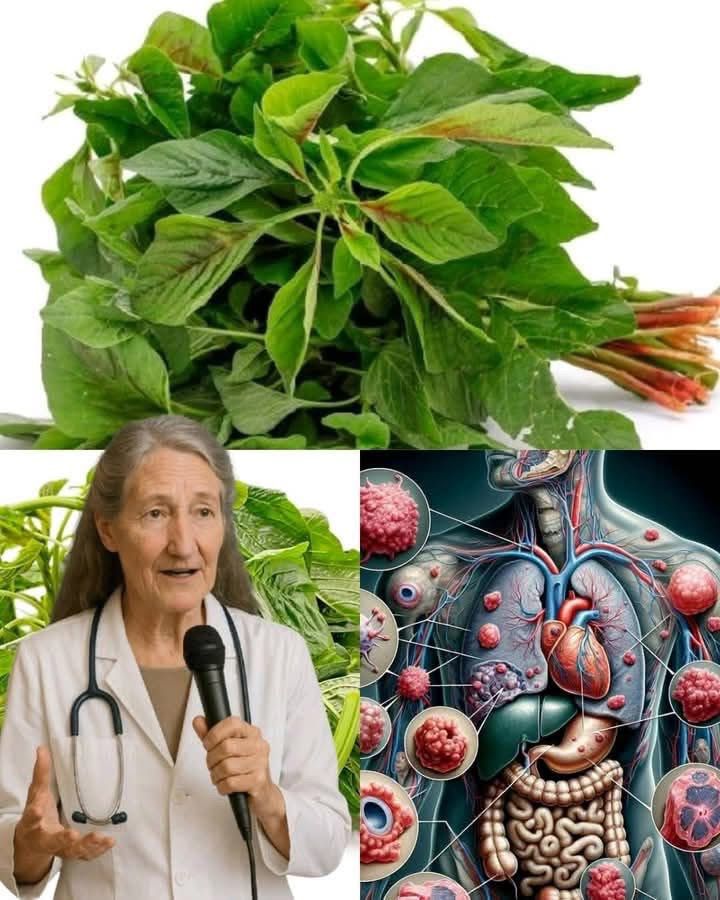
Amaranth Leaves: A Powerhouse of Health**
A Healing Recipe with Ancient Roots
History of Amaranth Leaves**
Amaranth has been cultivated for over 8,000 years, tracing its roots to Aztec, African, Indian, and Chinese civilizations. It was revered not only as a food source but also for its medicinal properties. The plant, both leaf and seed, was considered sacred in Aztec rituals and continues to be a staple in African and Indian diets today.
Herbal Amaranth Leaf Stir-Fry (Power Veggie Dish)**
A traditional dish with a modern wellness twist.
Ingredients:**
- 3 cups fresh amaranth leaves (washed & chopped)
- 1 tbsp cold-pressed coconut oil or olive oil
- 1/2 tsp mustard seeds
- 1/4 tsp cumin seeds
- 1 finely chopped onion
- 2-3 cloves garlic, minced
- 1 small piece ginger, grated
- 1 chopped green chili (optional)
- Salt to taste
- 1/4 tsp turmeric powder
- Juice of half a lemon
- Optional: Grated coconut, roasted peanuts, or paneer cubes for protein
Method:**
- Heat oil in a skillet on medium heat.
- Add mustard seeds and let them crackle, then toss in cumin seeds.
- Sauté the onion, garlic, ginger, and green chili until golden.
- Add turmeric powder, stir briefly.
- Add the amaranth leaves and a pinch of salt. Cook covered for 5–7 minutes until wilted.
- Squeeze lemon juice over it just before serving.
- Garnish with optional toppings for added texture and nutrition.
Health Benefits:**
- Rich in Iron: Fights anemia and boosts energy. *High in antioxidants: Fights free radicals and supports brain health.
*Lowers cholesterol: With fiber and phytosterols. *Strengthens bones: Loaded with calcium and magnesium.
*Aids digestion**: High fiber content regulates gut health. - Supports immunity**: Vitamins A, C, and E enhance resistance to infections.
- Diabetic-friendly**: Low glycemic index helps manage blood sugar levels.
Formation & Composition**
- Macronutrients: Protein (2.5g/100g), Carbohydrates (7g), Fiber (3g)
- Micronutrients:
- Iron (2.3mg)
- Calcium (215mg)
- Vitamin C (43mg)
- Magnesium, Potassium, Vitamin K
Lovers of Amaranth Leaf Recipes**
Ayurvedic practitioners* for its pitta-balancing effects.
Vegans & vegetarians* for plant-based iron and protein.
Elderly communities* for its easy digestion and anti-inflammatory properties.
- Fitness enthusiasts** as a superfood for recovery and muscle health.
Nutrition Profile (per 100g cooked)**
| Nutrient | Amount |
|---|---|
| Calories | 25 kcal |
| Protein | 2.5 g |
| Fiber | 3 g |
| Iron | 2.3 mg |
| Calcium | 215 mg |
| Vitamin A | 291 µg |
| Vitamin C | 43 mg |
Conclusion**
Amaranth leaves are not just another green—they’re an ancient elixir rich in nutrients, healing compounds, and culinary versatility. Whether sautéed, steamed, or made into soups or curries, they bring both flavor and functional medicine to your plate.
Final Word from the Lovers**
“We don’t eat to just fill our stomachs. We eat to heal, to nourish, and to thrive. Amaranth leaves are green miracles that remind us: food is medicine.” — Traditional herbalist wisdom